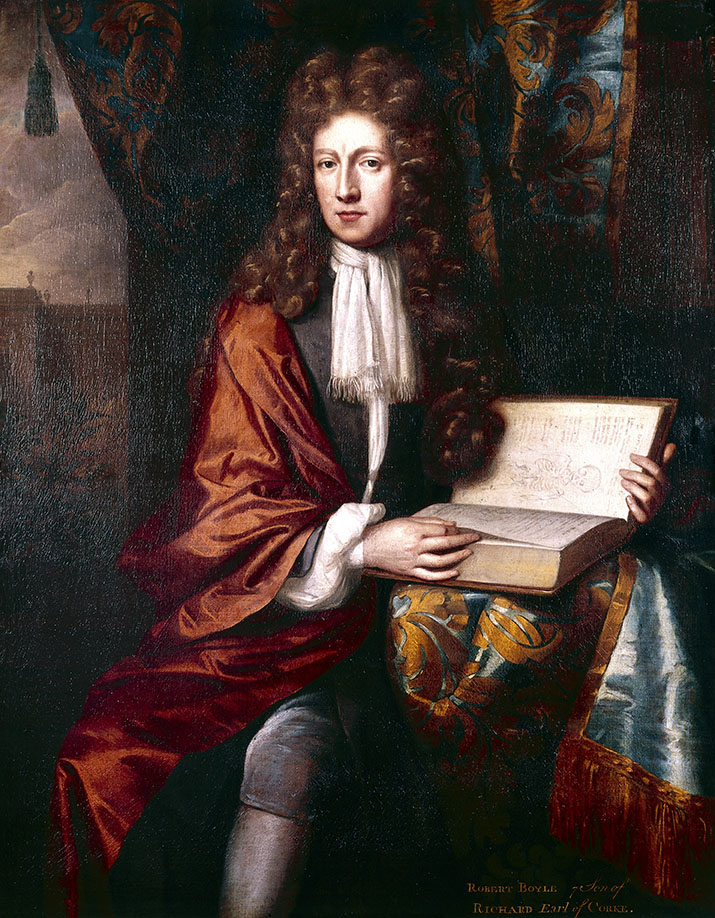

Robert Boyle was an English natural philosopher and chemist who is considered the "father of modern chemistry". He is best known for his discovery of Boyle's law, which states that the pressure of a gas is inversely proportional to its volume at a constant temperature.
Boyle was born in Lismore Castle, Ireland, in 1627. He was the son of the 1st Earl of Cork. Boyle studied at Eton College and then at Oxford University, where he received his Master of Arts degree in 1656.
After graduating from Oxford, Boyle travelled to Italy and France. He met with scientists from all over Europe, and he learned about the latest scientific discoveries.
When Boyle returned to England, he set up a laboratory in his home. He began to experiment with gases, and he made many important discoveries. He showed that the volume of a gas is inversely proportional to its pressure, and he developed the law of partial pressures.
Boyle's work on gases was groundbreaking. It helped to lay the foundation for modern chemistry, and it had a major impact on our understanding of the physical world.
Boyle was also a prolific writer. He published many books on science, including "The Sceptical Chymist" (1661), which is considered one of the most important works in the history of chemistry.
Boyle died in London in 1691. He was 63 years old.
Robert Boyle was born on January 25, 1627, in Lismore, Ireland.

There are no different forms of the word "Robert Boyle". It is the name of a person.
The name "Robert" is a Germanic name that means "bright fame". The name "Boyle" is an English surname that means "dweller at the hill.".
What is Robert Boyle famous for?
Question:
Describe Robert Boyle's experiments on the relationship between pressure and volume of gases and explain the resulting fundamental principle.
Answer:
Robert Boyle, a pioneering chemist and physicist, conducted groundbreaking experiments to elucidate the relationship between pressure and the volume of gases. Using a J-shaped glass tube and mercury, he trapped air inside and observed changes as he varied the pressure. Boyle's experiments led to the formulation of Boyle's Law, which states that at a constant temperature, the volume of a gas is inversely proportional to its pressure.
Boyle's Law can be explained through the behaviour of gas particles. As pressure increases, gas particles are pushed closer together, reducing the volume they occupy. Conversely, decreasing pressure allows particles to move further apart, increasing the volume. Boyle's experiments and subsequent law laid the foundation for understanding the behaviour of gases and the fundamental principles of gas laws, eventually contributing to the development of the ideal gas law. His work not only advanced the field of chemistry but also paved the way for advancements in various areas of science and engineering that rely on our understanding of gas behaviour.
Address
Developing Experts Limited
Exchange Street Buildings
35-37 Exchange Street
Norwich
NR2 1DP
UK
Phone
01603 273515
Email
hello@developingexperts.com
Copyright 2025 Developing Experts, All rights reserved.